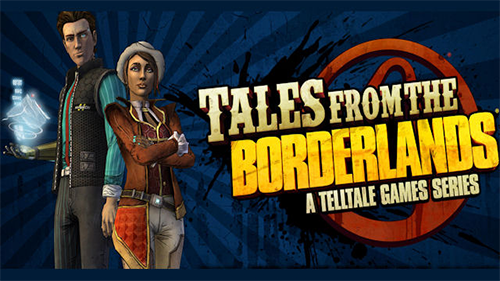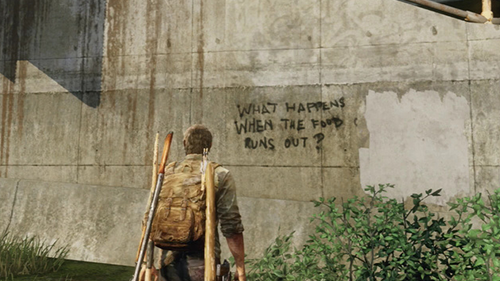By: Max Cannon
It may not be a popular opinion, especially on the gaming section of Kidzworld, but very very few games have nailed storytelling. There is a strong difference between the story of a game and the storytelling of a game—the story being what happens, and the storytelling is how that information comes to us. For example the story of BioShock would be something along the lines of “A man’s airplane crashes into the ocean, where he finds a fallen underwater city,” the storytelling would come to us by means of audio diaries, dialogue, and the occasional cutscene.
Video games are at a disadvantage when it comes to storytelling because information comes to you at a different pace than most media. A good book or film script shouldn’t have a single wasted moment and every line of dialogue should give you information about the plot, setting, or characters. The pacing of what you’re seeing is controlled by a writer, director, or editor but in games the player is often in control of when information comes to them based on how quickly they progress through the game.
 Games have a different storytelling method than movies.Courtesy of EW
Games have a different storytelling method than movies.Courtesy of EW
Games Vs. Movies
Most well written stories have a basic template that they follow and the games with the best storytelling will follow a similar structure. There will be moments of exposition and moments of action. A good writer or director can balance the two, and makes sure that the audience is getting what they need to remain engaged the whole time. An action movie will have moments in which you’ll get insight into motivation or an exposition on plot points. Those moments are then followed with A BIG GIANT SHOOTOUT—before returning to some more exposition AND THEN A CAR CHASE and so on. The exposition scenes are normally given to the audience in an interesting way; the actors might be walking or driving, or doing some sort of action while they talk.
In a video game things can happen really differently. Some players don’t care about the story, some players don’t quite understand where the story is going next and maybe don’t follow the right thread, some players may simply not have the hours upon hours to keep progressing conveniently. Games follow that same pattern as films but won’t often flow as well. Games like The Last of Us do a great job at doing a “walk-n’-talk” as you walk down a hall or street to give you that information—but if the player decides to stop and look at a poster the dialogue may end quickly, or if they are crouching and sprinting the whole time while randomly firing their gun in the air they could lose the plot. The storytelling can easily be disrupted. Of course the player can control this and make it their own, but it can detract from the creator’s initial vision.
 The Last Of Us blurs the line between gaming storytelling and cinematic storytelling.Courtesy of Sony
The Last Of Us blurs the line between gaming storytelling and cinematic storytelling.Courtesy of Sony
Stories In An Open World
There’s a glut of bloated open world games out right now, but it’s interesting to also see the rise of shorter bite-sized experiences. 20 dollar games that you can finish in a couple hours rarely outstaying their welcome. A quick play-through of Journey, Everybody’s Gone to the Rapture, or an episode of The Walking Dead game can keep the player immersed and engaged in the story. These games can get their story in, control the pacing, and elegantly get out again. The result is that these games are well received for their fantastic story because people can truly appreciate it.
Although loved for their story, some of these games often can’t offer the replay value of their competitors. For example, Tales From The Borderlands is definitely slower than Borderlands proper when it comes to gameplay. Then again, those games with amazing gameplay normally have weak storytelling. As beautifully realized and living a game it is, Grand Theft Auto V had very disappointing storytelling. Michael, Trevor, and Franklin are fleshed out and interesting characters, but they lack any fulfilling character arcs because of the interfering gameplay. Any time Franklin is in a story mission and complaining how he doesn’t want to do amateur gang-banging work, I know I’m just five minutes away from free-roaming and having him do some amateur gang-banging work. It may defeat his character but it’s fun, and as a gamer that is what I want out of my game.
 The original Borderlands is significantly less story-focused than Telltale's game.Courtesy of Gear Nuke
The original Borderlands is significantly less story-focused than Telltale's game.Courtesy of Gear Nuke
Scooting Story To The Side
Audio diaries, graffiti on the walls, mail from the deceased—we’ve seen all these classic storytelling methods. Sometimes interesting and crucial story points are hidden away with these secondary storytelling techniques, which are often easily missed. In Metal Gear Solid V: The Phantom Pain, important plot points are available in the form of cassette tapes, these shocking and pivotal moments are able to be listened to whenever you want, but there is rarely a good moment to listen and play at the same time, and there are hundreds of these tapes. Luckily Metal Gear chooses to highlight the important ones in yellow, but that still doesn’t make it an effective way to give information via exposition-dumps that can last anywhere from thirty seconds to ten minutes in other games. It may be convenient to listen to this information at your leisure, but the method is becoming overused and sometimes a long audio diary could just be a waste of time and completely irrelevant to the main story, whereas a different audio diary could be a key plot point. This solution works to an extent, but our classic gameplay driven games need to find something that isn’t so expected.
Gameplay will always be king, but that doesn’t mean we shouldn’t put storytelling under the microscope. Games can draw a player in like no other form of media can and it’s important that our storytelling is held to a higher standard.
 Games may use graffiti as set dressing but it's often extremely overused.Courtesy of Play The Past
Games may use graffiti as set dressing but it's often extremely overused.Courtesy of Play The Past
Have Your Say!
Which gaming stories have been the most important to you? Do you prefer the stories in games or movies? Share your thoughts below!

































